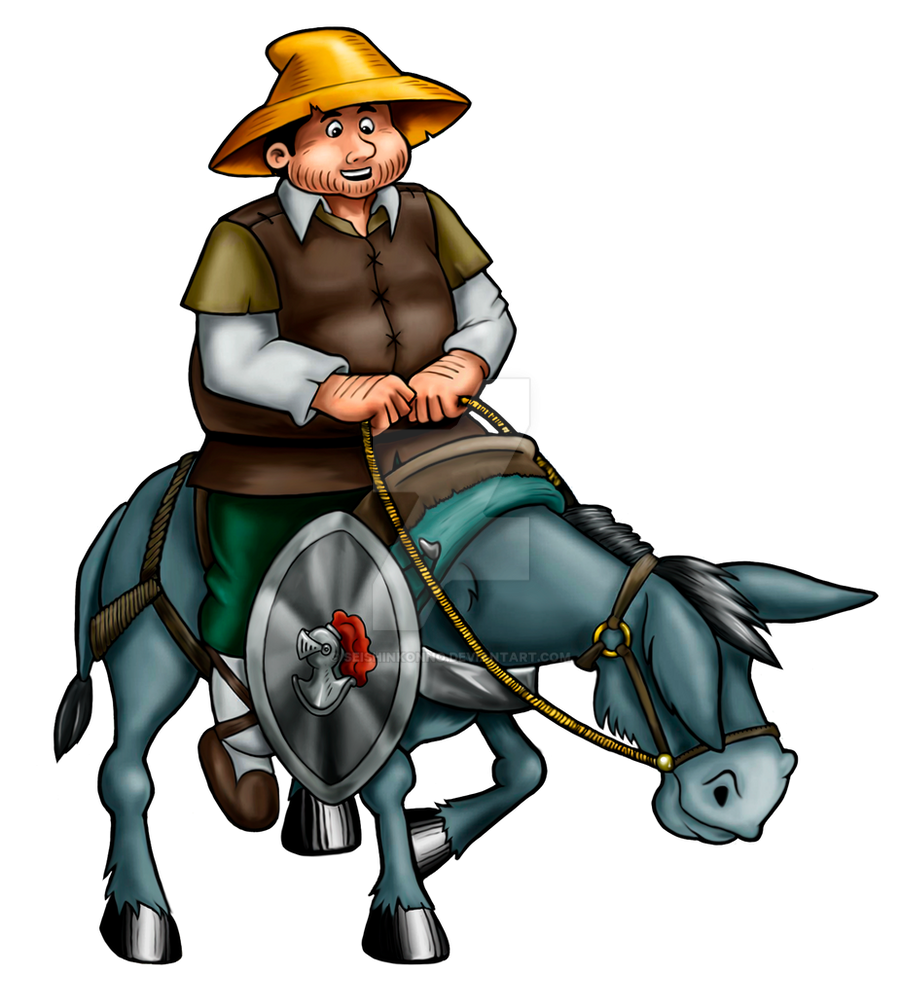Sancho Panza, the iconic squire of Don Quixote, embodies the archetype of the loyal companion, a figure whose steadfastness contrasts starkly with the whims of his master. While Don Quixote pursues lofty ideals—chasing windmills, dreamt of as giants—Sancho serves as the tether to reality, a grounding presence amidst the dizzying escapades of chivalric fantasies. In this dynamic duo, Sancho emerges not merely as a sidekick but as the pragmatic lens through which the exuberances of quixotry are both illuminated and tempered.
The rich tapestry of Sancho’s character invites exploration. With his earthy wit and sagacity, he provides a juxtaposition to Don Quixote’s romantic delusions. Sancho’s perspective is often encapsulated in a straightforward aphorism, revealing the wisdom borne from a lifetime of mundane trials. He is a metaphorical beacon, guiding audiences through the labyrinthine corridors of human folly and ambition. By navigating the terrain of reality with an unembellished demeanor, Sancho becomes a foil to his master, making the absurdities of Quixote’s journey all the more palpable.
Upon examining Sancho’s role, one finds that he embodies the duality of human experience—the clash between aspiration and disillusionment. His dreams of political prominence, such as the desire to be governor of an island, serve as a poignant reminder of the elaborate yet often unattainable visions we construct for ourselves. Sancho’s aspirations mirror that of Quixote, yet his motivations are guided by a palpable sense of practicality. He personifies the balance required in life: the need to dream, to strive for the extraordinary, but equally to remain tethered to the reality of one’s circumstances.
Moreover, this rustic squire possesses an intrinsic charm that captivates audiences, transcending the confines of literary confines. Sancho’s penchant for earthy humor adds levity to potentially profound narratives, rendering him a relatable figure to the everyman. His philosophical musings—burgeoning with undelivered truths—invoke introspection about one’s own journey through a tumultuous world. They elevate the character from mere comic relief to a vessel of deeper moral inquiry regarding the human condition.
Undoubtedly, Sancho Panza serves not only as the enduring squire of Don Quixote but as an emblem of the folly and wisdom inherent in our pursuits. His character proffers a unique appeal through a lens of irony and sincerity, inviting readers to ponder the chimeras they pursue. In this union of folly and realism lies the essence of what it means to navigate the aspirations and disappointments of life, reminding us that sometimes, it is the journey—and the companions we choose along the way—that truly matters.
